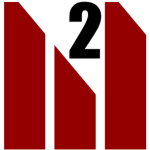![]()
![]()
![]()
Use LEFT and RIGHT arrow keys to navigate between flashcards;
Use UP and DOWN arrow keys to flip the card;
H to show hint;
A reads text to speech;
29 Cards in this Set
- Front
- Back
|
Adaptive Life Cycle
|
A project life cycle, also known as change-driven or agile methods, that is intended to facilitate change and require a high degree of ongoing stakeholder involvement. These life cycles are also iterative and incremental, but differ in that iterations are very rapid (usually 2-4 weeks in length) and are fixed in time and resources.
|
|
|
Application Area
|
A category of projects that have common components significant in such projects, but are not needed or present in all projects. These are usually defined in terms of either the product (i.e., by similar technologies or production methods) or the type of customer (i.e., internal versus external, government versus commercial) or industry sector (i.e., utilities, automotive, aerospace, information technologies, etc.) and can overlap.
|
|
|
Charter
Preferred term: Project Charter |
A document issued by the project initiator or sponsor that formally authorizes the existence of a project and provides the project manager with the authority to apply organizational resources to project activities.
|
|
|
Closing Process Group
|
Those processes performed to finalize all activities across all Process Groups to formally close a project or phase.
|
|
|
Fast Tracking
|
A schedule compression technique in which activities or phases normally done in sequence are performed in parallel for at least a portion of their duration.
|
|
|
Initiating Process Group
|
Those processes performed to define a new project or a new phase of an existing project by obtaining authorization to start the project or phase.
|
|
|
Methodology
|
A system of practices, techniques, procedures, and rules used by those who work in a discipline.
|
|
|
Output
|
A product, result, or service generated by a process. May be an input to a successor process.
|
|
|
Project Phase
|
A collection of logically related project activities that culminates in the completion of one or more deliverables.
|
|
|
Phase Gate
|
A review at the end of a phase in which a decision is made to continue to the next phase, to continue with modification, or to end a project or program.
|
|
|
Planning Process Group
|
Those processes required to establish the scope of the project, refine the objectives, and define the course of action required to attain the objectives that the project was undertaken to achieve.
|
|
|
Policy
|
A structured pattern of actions adopted by an organization such that the organization's policy can be explained as a set of basic principles that govern the organization's conduct.
|
|
|
Procedure
|
An established method of accomplishing a consistent performance or result, a procedure typically can be described as the sequence of steps that will be used to execute a process.
|
|
|
Process
|
A systematic series of activities directed towards causing an end result such that one or more inputs will be acted upon to create one or more outputs.
|
|
|
Project
|
A temporary endeavor undertaken to create a unique product, service, or result.
|
|
|
Project Charter
|
A document issued by the project initiator or sponsor that formally authorizes the existence of a project and provides the project manager with the authority to apply organizational resources to project activities.
|
|
|
Project Life Cycle
|
The series of phases that a project passes through from its initiation to its closure.
|
|
|
Project Management Information System
|
An information system consisting of the tools and techniques used to gather, integrate, and disseminate the outputs of project management processes. It is used to support all aspects of the project from initiating through closing, and can include both manual and automated systems.
|
|
|
Project Management Knowledge Area
|
An identified area of project management defined by its knowledge requirements and described in terms of its component processes, practices, inputs, outputs, tools, and techniques.
|
|
|
Project Management Process Group
|
A logical grouping of project management inputs, tools and techniques, and outputs. The Project Management Process Groups include initiating processes, planning processes, executing processes, monitoring and controlling processes, and closing processes. Project Management Process Groups are not project phases.
|
|
|
Reporting Systems
|
Facilities, processes, and procedures used to generate or consolidate reports from one or more information management systems and facilitate report distribution to the project stakeholders.
|
|
|
Tailor (Tailoring)
|
The act of carefully selecting process and related inputs and outputs contained within the PMBOK Guide® to determine a subset of specific processes that will be included within a project's overall management approach.
|
|
|
Technique
|
A defined systematic procedure employed by a human resource to perform an activity to produce a product or result or deliver a service, and that may employ one or more tools.
|
|
|
Templates
|
A partially complete document in a predefined format that provides a defined structure for collecting, organizing, and presenting information and data.
|
|
|
Tool
|
Something tangible, such as a template or software program, used in performing an activity to produce a product or result.
|
|
|
Work Performance Data
|
The raw observations and measurements identified during activities being performed to carry out the project work.
|
|
|
Work Performance Information
|
The performance data collected from various controlling processes, analyzed in context and integrated based on relationships across areas.
|
|
|
Work Performance Reports
|
The physical or electronic representation of work performance information compiled in project documents, intended to generate decisions, actions, or awareness.
|
|

|
If you enjoyed this deck, consider making a donation at www.msquarecenter.com
|

